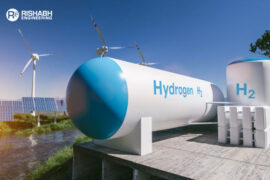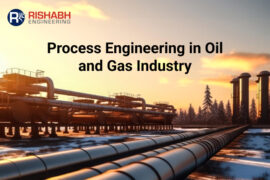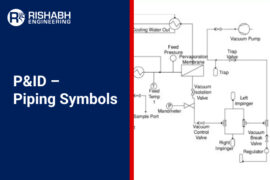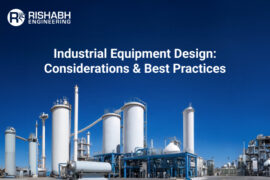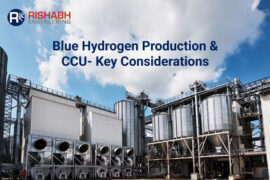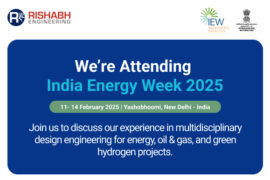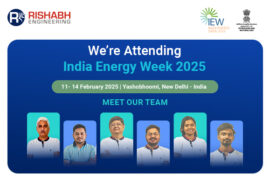As the world accelerates toward net-zero emissions, green hydrogen is taking center stage as a clean, flexible, and scalable energy carrier. Once considered niche, it has now become a core part of global decarbonization strategies across sectors and geographies. This blog will explore the current state of green hydrogen production, its benefits, process, key advancements, and Rishabh Engineering’s strides to harness its potential to revolutionize the energy landscape and address climate change challenges.
Process Engineering in the Oil and Gas Industry
In this blog, we’ll explore how process engineering applies for industrial operations across the oil and gas industry. You’ll also get a sense of the day-to-day work — everything from system design and equipment selection to troubleshooting and performance optimization. We’ll examine how process engineers must collaborate with other disciplines—piping, electrical, and instrumentation—to execute successful projects.
Piping P&ID Symbols and Their Applications
In this blog, we’ll discuss the piping symbols that are commonly used in P&ID designs. Since each of these symbols is supposed to represent a certain type of link, device, or function, it is essential to comprehend them to build and maintain processes precisely.
Harnessing Aspen EDR for Heat Exchanger Design
This blog examines how Rishabh Engineering team utilizes Aspen EDR for heat exchanger design, with key features & functionalities, and real world case studies where it has improved industrial operations.
Industrial Equipment Design: Key Considerations & Best Practices
In this article, we will discuss the specifics of equipment design, their types, industrial equipment design considerations, process, along with role of multidiscipline design engineering, designing best practices along with roles and responsibilities.
Enhancing Accuracy In Pre-Bid Estimation With Multidisciplinary Engineering
In this blog, we’ll discuss the importance & potential challenges with pre-bid estimations and how a multidiscipline design engineering company can help enhance efficiency.
Blue Hydrogen Production Process & CCU Considerations
With this article, we’ll explore what is blue hydrogen production & CCU with key considerations, processes, and how a multidisciplinary design engineering company can help you address this.
Pipeline Corrosion Prevention: How Multidisciplinary Engineering Can Help?
It takes a multidisciplinary strategy that combines knowledge of engineering design, material science, inspection technologies, and maintenance methods to effectively address pipeline corrosion. This can be greatly enhanced by an experienced engineering services team, and in this blog, we’ll examine their varied approaches for pipeline corrosion prevention and management.
Meet Rishabh Engineering at India Energy Week 2025 – Let’s Collaborate
The India Energy Week (IEW) 2025, taking place from 11–14 February 2025 in New Delhi, serves as a pivotal platform to discuss and showcase advancements in the global energy landscape. As one of the first major energy events of the year, it will set the tone for innovation, sustainability, and collaboration across the industry.
Rishabh Engineering at India Energy Week 2025 – Focused on Modern Energy Solutions
India Energy Week (IEW) 2025, scheduled from 11–14 February 2025 in New Delhi, promises to be one of the most significant events in the global energy calendar. Organized under the patronage of the Ministry of Petroleum and Natural Gas, IEW brings together industry leaders, innovators, policymakers, and manufacturers to discuss advancements shaping the future of energy.
